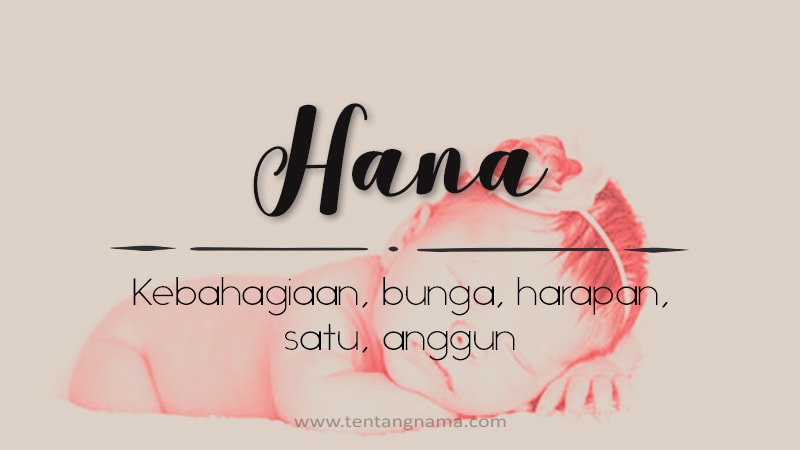Arti Nama Hana dalam Bahasa Jepang
Names are more than just labels; they’re echoes of history, culture, and hope. Today, we’re diving deep into the captivating world of Japanese names, specifically focusing on the beautiful and universally appealing name "Hana." What does "Hana" mean in Japanese? It’s more than just "flower," trust us! Let’s embark on this linguistic and cultural journey together.

Unveiling the Core Meaning: Hana as "Flower"
At its most fundamental level, "Hana" (花) directly translates to "flower" in Japanese. Simple, right? But don’t be fooled! This seemingly straightforward meaning is just the tip of the iceberg. Think about the symbolism of flowers across cultures – beauty, fragility, renewal, and the fleeting nature of life. All these connotations are subtly woven into the fabric of the name "Hana."
Why Flowers Hold Such Significance in Japanese Culture
Japanese culture is deeply intertwined with nature. From the art of Ikebana (flower arranging) to the celebration of Hanami (cherry blossom viewing), flowers play a vital role. They represent beauty, impermanence, and the delicate balance of the natural world. Giving a child the name "Hana" is, in a way, bestowing upon them these cherished qualities. Imagine a name that whispers of spring breezes and vibrant colors – that’s "Hana."
Beyond the Literal: Delving Deeper into Hana’s Nuances
While "flower" is the primary meaning, the beauty of the Japanese language lies in its kanji characters. Each character can carry multiple layers of meaning, depending on context and combinations.
The Kanji Character (花): More Than Meets the Eye
The kanji for "Hana" (花) is composed of two radicals: "艹" (kusakanmuri), which represents grass or plants, and "化" (ka), which means "change" or "transformation." This combination suggests the idea of something beautiful emerging from the earth, transforming from a seed into a blossoming flower. Isn’t that poetic?
Hana in Compound Words: Expanding the Semantic Field
The word "Hana" is also used in numerous compound words in Japanese, further enriching its meaning. Consider these examples:
- Hanabi (花火): Fireworks (literally "flower fire") – evokes images of dazzling displays of light and color.
- Hanami (花見): Cherry blossom viewing – a celebration of spring and the ephemeral beauty of nature.
- Hanayaka (華やか): Brilliant, gorgeous, showy – describes something that is radiant and captivating.
These examples demonstrate how "Hana" extends beyond a simple noun to encompass concepts of beauty, celebration, and brilliance.
The Popularity of Hana: A Timeless Choice
"Hana" is a consistently popular name in Japan, beloved for its simplicity, elegance, and positive connotations. It’s a name that resonates across generations.
Why "Hana" Remains a Favorite Among Parents
- Simplicity and Elegance: The name is easy to pronounce and remember, yet it possesses a certain grace and refinement.
- Positive Connotations: The association with flowers naturally evokes feelings of beauty, joy, and optimism.
- Cultural Significance: The name is deeply rooted in Japanese culture and tradition, connecting the child to their heritage.
- Universality: The concept of "flower" transcends cultural boundaries, making the name appealing to people worldwide.
Hana as a Given Name: Personality Traits and Expectations
While a name doesn’t define a person, it can subtly influence expectations and perceptions. What kind of qualities might be associated with someone named "Hana"?





